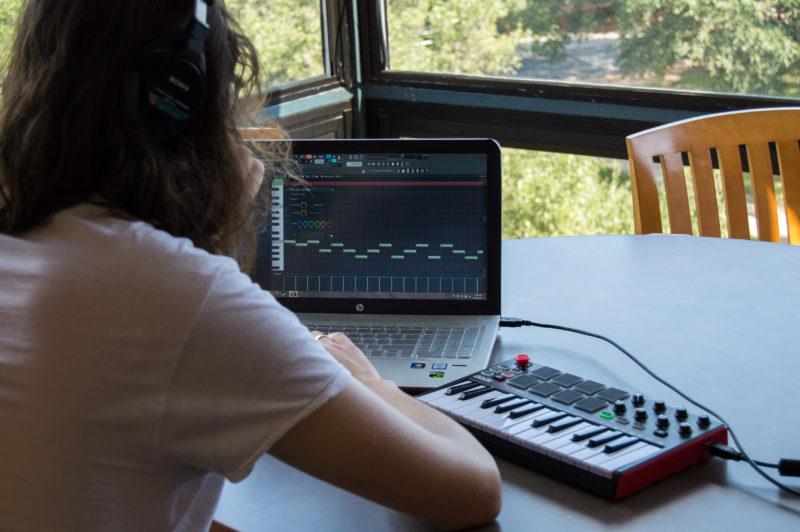Classes begin, and if you’re anything like me, you can already feel yourself falling back into your old routines. Sleeping as late as possible before rushing to class, gravitating towards the same three lines in Mabee; as strange as it is to say, with all of the stress of the new semester, it is not that difficult to operate on a kind of “˜autopilot.’ And as anybody who has driven with cruise control can tell you: having things on autopilot is great for convenience’s sake, but it makes it so much harder to be engaged.
I’ve found that the easiest trick to overcoming this malaise is to throw yourself into creation “” find a tool that you have never held before, and learn how to use it to make something beautiful.
In my particular case, I spent much of last semester trying to wrap my head around creating electronic music. This probably isn’t the most herculean task I’ve ever put myself through, but it’s been a very long time since my childhood piano lessons “” between my nonexistent knowledge of musical theory and the byzantine layouts for the music creation softwares I’ve been using, I found myself more than a little overwhelmed.
In the beginning, it felt less like I was creating music, and more like I was hitting my head against a wall. Hell, it took me an hour before I could figure out how to assign volumes to the shrieking noises I was making. It felt frustrating and pointless, but little by little, I slowly found little ways to speed up the process “” shortcuts and tricks that helped me make a little bit more progress each night than the one before. After a certain point, something peculiar happened: it stopped feeling like a chore, and more like something I actually wanted to do.
I’m not going to say that I’ve become some kind of music production champion, but, the way I see it, the fact that I’ve made a few songs I’m not entirely ashamed of is a mark of progress.
The idea of coming home from school- and work-related stresses only to engage in something stressful for the purpose of relaxation is not the most charming one, especially since it is infinitely easier to simply consume the creations of others. Why bother making a short film when there are so many movies out there for your viewing pleasure, streamable with a few clicks of a mouse? Why struggle to learn to paint when there are so many great paintings that already exist “” some of them masterpieces that could make your work look amateurish in comparison?
This pressure, this need to find immediate success in all of one’s endeavors, is as pervasive as it is false. It is a self-imposed limit that I have only recently discovered was not protecting the quality of anything I created. Rather, for too long I had let it frighten me from attempting anything new at all. It would be a blatant lie to say that my musical creations are brilliant “” but, if it weren’t for all of them, successes and failures alike, I wouldn’t have gained such confidence in my creativity over these last few months.
The amount of unique creative classes offered at universities has been made fun of in the past “” insert your “˜underwater basket weaving’ comments here. Yet, I can honestly say that the bizarre and strange classes I’ve taken at Trinity have been my favorites. This semester, I’ve enrolled in an electronic music course offered by Trinity’s own Brian Bondari; with any luck, I’ll gain some practical knowledge that will make my ill-fated attempts at making music a little less so. I highly suggest that anybody who has a similar inclination towards creation do the same.
Go ahead, take that wood sculpture course, or that class on screen printing. Try your hand at learning to paint, taking photographs or learning an instrument. And know that if you fail, you’ll be in good company. I’ll be here, failing right alongside you, until one of us makes something kind-of-sort-of OK.






